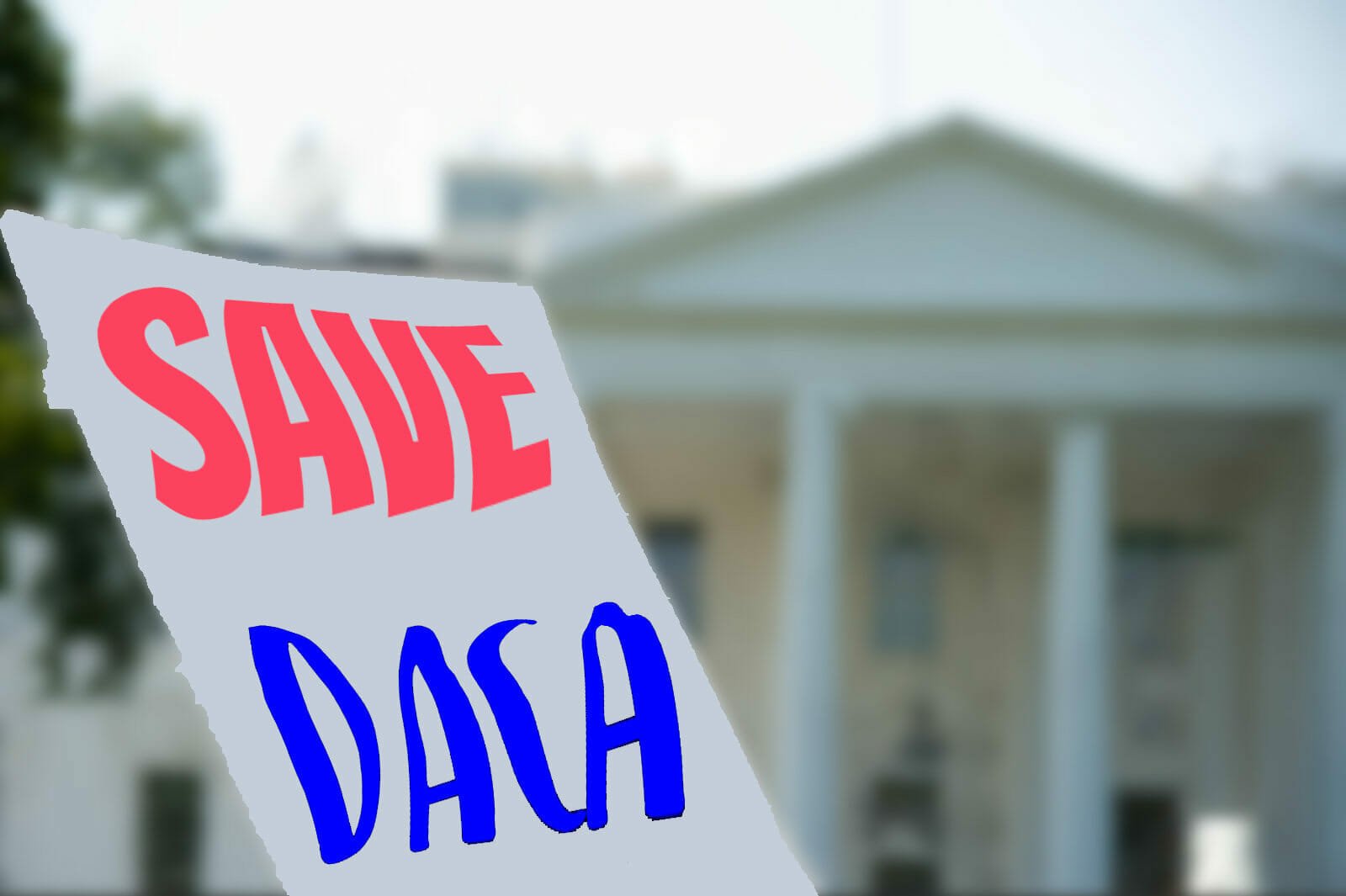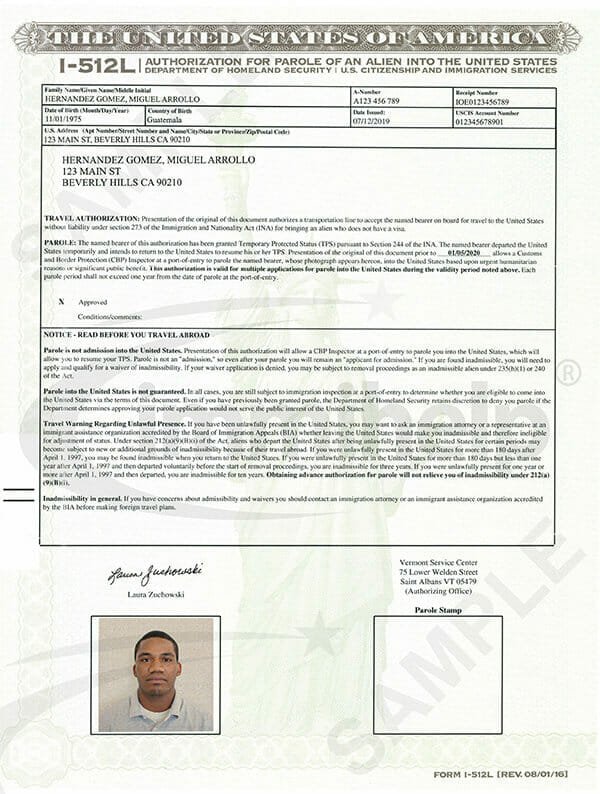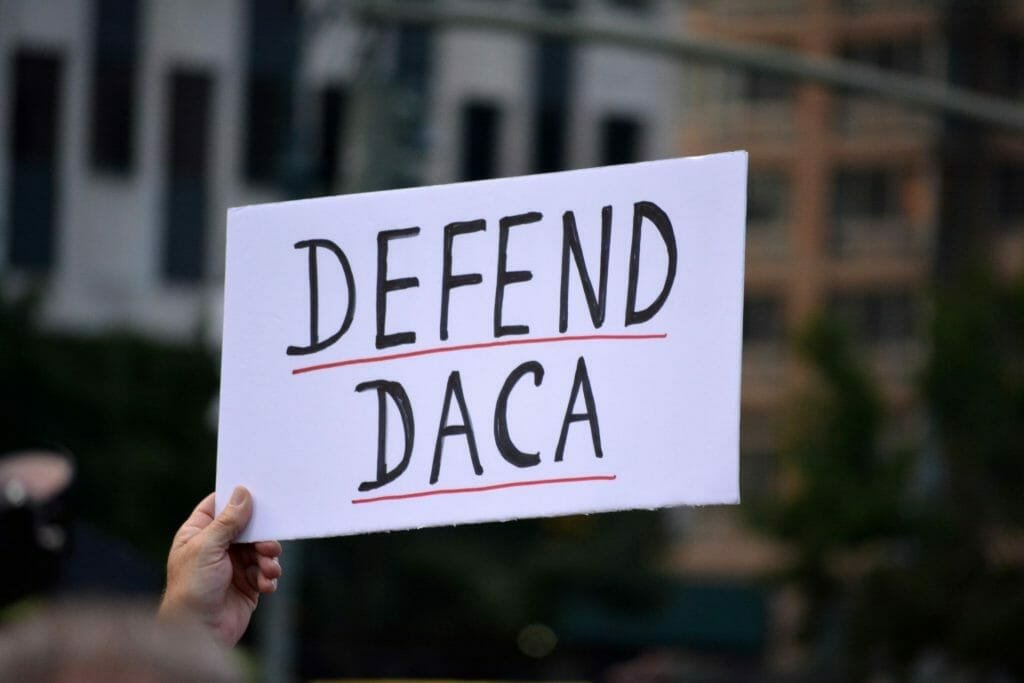DACA and advance parole: What are they? If you have DACA and want to take a trip outside of the country, you need to apply for advance parole. You generally can’t reenter the United States without it. But what is it? What are the benefits of being paroled? How much does it cost? How long does it take? This article explains what advance parole is, who is eligible, how to apply, and answers the most commonly asked questions.
What is Advance Parole for DACA?
Advance parole for DACA was put in place by the Obama Administration. Under the different presidential administrations, the program has at times been shut down. As of May 23, 2021, the U.S. Citizenship and Immigrations Services (USCIS) is currently accepting applications. This immigration beenfit allows certain individuals to travel outside of the US without fear of being denied reentry.
Additionally, this immigration benefit is a type of parole under immigration law. Some of the common types of parole include, parole in place, humanitarian parole, and advance parole. Although immigration law does not consider any type of parole as a lawful entry, being paroled into the USA is akin to entering with permission.
The technical differences isn't too important for this discussion. Rather, what is important is the advantage this immigration benefit gives. Much like that of a lawful entry, being paroled allows you to can use this to become a resident in the United States. As there are numerous other factors that need to be assessed in a person's case, for most people the legal analysis would not stop here. In order to get advance parole, there are a few things you need to do.

For What Reasons Can I get Advance Parole for DACA?
There are three reasons for which you can apply: (1) education purposes, (2) employment purposes, or (3) humanitarian purposes.
How Much Does DACA Advance Parole Cost?
As of May 23, 2021, USCIS charges $575 to process an application. For emergency applications, USCIS only takes payment if you will be approved. You can pay the fee with a money order, personal check, cashier's check, or even a credit card. If you choose a credit card payment, you need to use USCIS's credit card form. If you don't have an emergency, you mail your parole application to USCIS. Through the mailing route, USCIS will takeyour payment regardless if they approve your application or not. To get the latest USCIS fees, check out their website.
Can I Get a Green Card with Advance Parole?
Being paroled can provide many benefits, but it is not a one-way ticket to a green card. In some cases, if a person gets paroled they may be eligible to obtain legal permanent residency, or as it is commonly known a green card. Generally, in order to obtain a green card, there are two ways: in the USA or where you were born. The important thing to keep in mind is how did you enter the United States? To become a resident in the USA, you must have had some sort of legal entry. Although advance parole for DACA is technically not a lawful entry, the way the law is written, the immigration benefit can be used to adjust status and get your green card. Keep in mind, this may change as it did for individuals who have Temporary Protected Status. As of writing this article, DACA and advance parole do allow you to get a green card assuming everything else is in order. If you did not have a lawful entry into the United States, then you generally have to return to your country of birth. For these cases, you might even need a waiver to waive your unlawful presence.
Keep in mind, being paroled just gives you a lawful means to obtain a green card. Advance parole does not wait any other ground of inadmissibility. If a person is permanently barred from becoming a resident, obtaining this immigration benefit will not change your eligibility. Additionally, if you have other negative factors in your case, such as a criminal record, advance parole will not change how this affects your immigration eligibility.
How Long Does the Processing Time Take?
The processing times vary depending upon if you are submitting an emergency or a non-emergency application. As of recently, you should be able to get an emergency appointment within a month of calling. However, this varies by location and the volume of cases that are ahead of you. If you have an emergency or think you might, you should act on this sooner rather than later. Additionally, if it is a non-emergency application, your wait time will be at least 6 months, but likely more. For the most up to date information, view USCIS' Case Processing Times Website.
When Can I Apply for Advance Parole?
In order to apply for advance parole, you need to already have DACA. If you are applying for DACA for the first time, you must submit your DACA application and wait until it is approved. Once your DACA is approved, then you can apply. Unfortunately, USCIS does not let first time DACA applicants file an advance parole application at the same time you file your DACA initial.
How Much Time Will USCIS Give Me?
This depends on each USCIS office. The normal time is approximately 1 months or 30 days. Obtaining advance parole will not allow you to reenter the USA numerous times. Advance parole allows one entry back into the USA. Theoretically, if a person had another basis they could potentially obtain it once again. However, the purpose of advance parole for DACA is not to allow someone to keep leaving and entering the USA. A person should only use it once and then when they can adjust status do so with the advance parole.

Approval of Advance Parole?
If your application is approved, you will obtain a travel document. USCIS labels this as an I-512L document. This document is your proof that you are allowed to be paroled back into the United States. As mentioned above, if you have another ground of inadmissibility, another reason that makes you ineligible to enter the USA, being paroled will not erase that negative factor. Furthermore, make sure that your document has the same information contained on your work permit. Both of these documents will be reviewed upon entry into the USA. How to renew your DACA work permit application.

